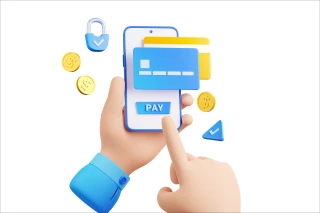
Data Protection Legislation: How Anonymous Numbers Protect Users
Using anonymous numbers is a popular way to protect personal information in the digital age. But how does the law regulate their use and what does this mean for users?
There are a lot of interesting and useful applications for AliPay, BIGO LIVE and others.
What laws regulate anonymous numbers?
-
GDPR (EU General Data Protection Regulation)
The GDPR, in force since 2018, sets strict rules for the processing of personal data, including anonymous numbers. If the number can be linked to a specific person through additional data, it is considered personal and is protected by the GDPR. -
Federal Law No. 152-FZ (Russia)
In Russia, the protection of personal data is regulated by Law No. 152-FZ. Anonymous numbers that do not allow for identification are not considered personal data. However, if there is a possibility of de-anonymization, such numbers are covered by the law. -
CCPA (California Privacy Act)
In the US, CCPA gives California residents the right to know what data is collected about them, including anonymous identifiers. If an anonymous number can be linked to an individual, it is subject to regulation.
How do anonymous numbers protect users?
-
Privacy in calls and messages
Anonymous numbers allow you to make calls and send messages without revealing your real phone number. This is especially useful for protecting against spam and scammers. -
Security in online transactions
Many services use anonymous numbers to confirm transactions to avoid leaking real data. For example, virtual numbers for two-factor authentication. -
Protection from tracking
Anonymous numbers make it difficult for users to be tracked through their phone data. This is important for those who value privacy on the Internet.
Interesting facts:
-
In 2021, the virtual number market was valued at 5.3 billion, and in 2028 it is expected to grow to 5.3 billion, and in 2028 it is expected to grow to 13.7 billion.
-
In Japan, anonymous numbers are actively used to protect against harassment — calls and messages from annoying people.
-
GDPR provides for fines of up to €20 million or 4% of a company's annual turnover for violations in the processing of personal data, including the improper use of anonymous numbers.
Result
Anonymous numbers are not just a tool for convenience, but an important element of personal data protection. Legislation in different countries strictly regulates their use to ensure a balance between convenience and privacy. Users can feel safer knowing that their data is protected both technologically and legally.
Virtual numbers are a powerful tool for the development and optimization of any business. They increase customer trust, improve communication, reduce costs and provide management flexibility. Regardless of the size and scope of your business, implementing virtual numbers will be an important step towards success and growth.
































